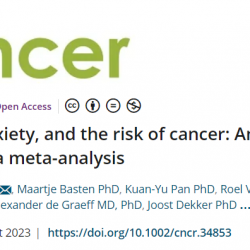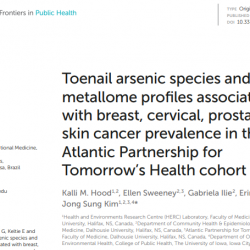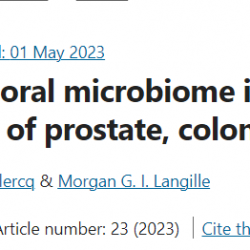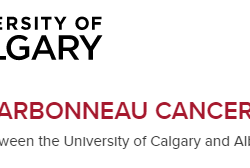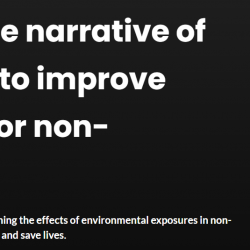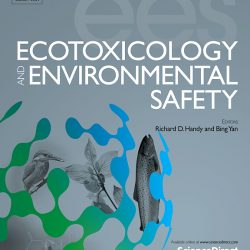New Publication – Depression, Anxiety and Risk of Cancer
We are pleased to share that the first results from the Psychosocial Factors and Cancer Incidence (PSY-CA) consortium have been published in Cancer. Led from the Netherlands by Dr. Lonneke van Tuijl and Dr. Joost Dekker, this study includes 18 cohorts with more than 300,000 participants including Atlantic PATH, the Ontario Health Study and CARTaGENE from CanPath. Our local team members include Mr. Yunsong Cui (Atlantic PATH) who completed all local analyses, Dr. Ellen Sweeney (Atlantic PATH) and Dr. Melanie Keats (Dalhousie University). Depression and anxiety have long been hypothesized to be related to an increased cancer risk, but, to date, findings are inconclusive. Individual participant data meta-analyses were performed within the PSY-CA consortium to assess the associations between depression, anxiety, and the incidence of various cancer types (overall, breast, lung, prostate, colorectal, alcohol-related, and smoking-related cancers). Findings from the study indicate that depression and anxiety are not related to increased risk for most cancer outcomes, except for lung and smoking-related cancers. This study shows that key covariates are likely to explain the relationship between depression, anxiety, and lung and smoking-related cancers. Link to publication: https://acsjournals.onlinelibrary.wiley.com/doi/10.1002/cncr.34853 Link to Neuroscience News article: https://neurosciencenews.com/depression-anxiety-cancer-23769/

